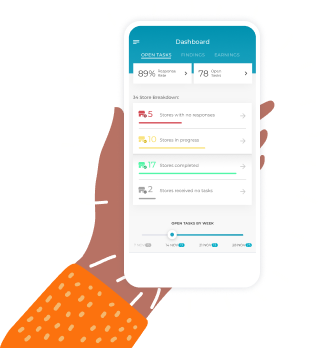There’s been a lot of talk about blockchain recently, with most of it centered around the volatile cryptocurrency market. However, for retailers, that’s not even remotely the most exciting part of this burgeoning technological revolution. Blockchain is opening up new and exciting opportunities for innovation that have the potential to revolutionize operations, supply chain, customer relations, and of course payment. This technology can offer companies unprecedented security while also streamlining communications and preventing fraud. More and more retailers are thinking about blockchain in retail in the hopes of finding new solutions to some of the oldest problems in the industry.
What Is Blockchain?
In order to discuss the huge potential for applying blockchain in retail, we first need to take a look at what it is and how it works. Speaking as simply as possible, blockchain is a method of authentication using a series, or “chain,” of encrypted ledgers, or “blocks.” Once written and encrypted, a block cannot be edited. These blocks are in turn validated through a network of trusted computers, which means that the records are public and gain credence via consensus. This creates a new level of digital authentication, wherein a physical or digital asset can be certified at different levels along a supply chain or in transit. The primary use of this tech has been to track and validate financial transactions made via cryptocurrency. However, blockchain can also be used to similar effect with material goods as well as documents. So, while it might be best known through driving Bitcoin and Ethereum, expanding the role of blockchain in retail can make life both safer and easier for retailers everywhere.
Trust Through Transparency
More and more, customers are worried about where their goods come from. Informed consumers will choose products based on where and how they were made. However, tracking the origin of a product can at times be difficult. And unfortunately, all too often, unscrupulous manufacturers and sellers will produce counterfeit or knockoff goods, exploiting customers and doing irreparable damage to the intellectual property and brands of legitimate retailers.
Blockchain in retail makes it possible to track and verify a product at every step of production, guaranteeing it’s what it claims to be on the label, thus increasing the integrity of the brand. Meanwhile, retailers worried about counterfeit items, particularly luxury retailers and fashion houses, can mark and track their items through blockchain and near-field communication. And since the technology is by its very nature transparent, it’s easier than ever for customers to confirm for themselves that they’re getting the genuine article.
Better Supply Chain
With information being added and verified every step of the way, blockchain can solve logistical problems by making it easier for product to get where it needs to be, while also making it easier to maintain standards. Product can be marked and verified as needed, while workers and managers at every level can rest assured that records haven’t been tampered with due the encrypted nature of the blocks.
One of the most interesting applications of this is through import Bills of Lading. These vitally important documents contain details on every piece of merchandise entering a country. As such, any retailer selling imported goods must handle many of these any given day. Usually, Bills of Lading must be handled through third-party centralized agencies in order to verify their authenticity. This process takes time and labor. But through blockchain, it may be possible in the near future for peer-to-peer transfers of these documents, thereby speeding up the process and enabling much faster and simpler international shipping.
Payments
The most well-known use of blockchain is the enabling of cryptocurrencies such as Bitcoin, Ethereum, and even more silly variations like Dogecoin, named after an internet meme. Most of the talk with regards to crypto has come from either speculators looking to turn a profit, or else from online retailers who are looking to expand their markets by accepting cryptocurrency. However, while brick-and-mortar retailers are also looking to accept crypto at point of sale, there are other opportunities as well.
Blockchain can enable retailers to cut down on fraud, waste, and shrink by tracking transactions though blockchain-enabled authentication. Many companies are experimenting with not only accepting cryptocurrencies as payment, but also developing improved payment systems based on blockchain to be used with conventional currencies. There are also B2B applications through so called “smart contracts” which are updated automatically as they are fulfilled or altered. While this future of new authentication and security is a few years off, analysts advise retailers to continue research into potential applications of blockchain, for the benefit of themselves and their customers.
If you’re curious about how machine learning can help improve store operations and drive same-store sales, read this article by CB4 CEO Yoni Benshaul.



